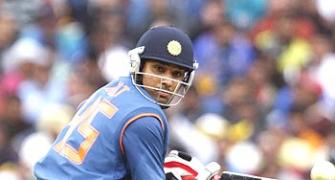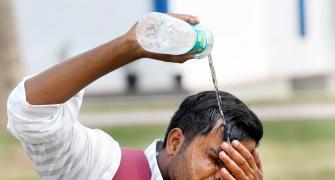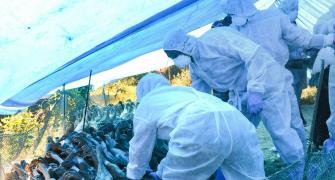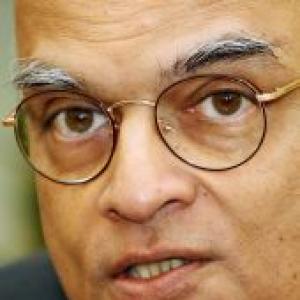In a clear reference to Pakistan, India on Saturday said clandestine proliferation network in the region had adversely affected its security and pitched for a new global paradigm to meet the challenge, factoring in the "real" risks of terrorists gaining access to nuclear material.
National Security Adviser Shivshankar Menon also highlighted the dangers India faces by being in the vicinity of "epicentre" of global terrorism and pressed for increased global collaborative efforts to defeat the menace particularly when terror groups are "networked to an unprecedented extent".
Addressing the 9th International Institute for Strategic Studies (IISS) Asia Security Summit -- The Shangri-La Dialogue here, he said, "security has acquired new transnational dimensions because of recent geo-political, technological and economic developments" and these have to be "dealt with differently from traditional security concerns".
Elaborating on the new transnational dimensions of security, Menon identified areas like spread of weapons of mass destruction, terrorism and climate change which need to be countered and ensuring cyber security, maritime security and outer space security.
"The world may now be at the proliferation tipping point in terms of both nuclear weapons and the militarisation of space. For India, clandestine proliferation networks in our neighbourhood have already adversely affected our security," the NSA said.
He did not name Pakistan but was clearly alluding to the country whose father of nuclear programme A Q Khan is known to have run a clandestine network of nuclear proliferation.
"The risk of nuclear weapons or of other weapons of mass destruction falling into extremist or terrorist hands is real and must be factored into our thinking," Menon said.
"It is clear that a new non-proliferation paradigm is necessary to deal with issues of nuclear security, caused by the rise of non-state actors and their links to formal or organised structures in weak states," he said.
He noted that India is the only nuclear-weapon state to announce an unequivocal no-first-use commitment and to declare that a world without nuclear weapons will enhance security.
On terrorism, Menon said it had been empowered by new technologies and in this context referred to Mumbai attacks.
"The Indian experience of cross-border terrorism shows the complexity of what we are dealing with. The 26/11 attacks on India were planned and organised in one country, where the attackers were trained, the logistics and communication support chain extended over at least seven countries," he pointed out.
Menon said terrorist groups are networked to an "unprecedented extent" and it is no longer possible to segment them by origin or ideology or targets.
"Located as we are in India beside the epicentre of global terrorism, we are acutely aware of the value of collaborative counter-terrorism efforts and of the need for more to be done," he said.
He said another issue of concern was maritime security and that India would be happy to work with other littoral states and naval powers in this domain to see how the threats at sea from terrorists, pirates, proliferators and organized crimes could be addressed.
"The experience of working together against such transnational threats may encourage the navies concerned to higher transparency and build confidence among them," he said.
Menon said there are major issues regarding the placement of weapons in space and of weapons designed to attack space-based assets.
"Military uses of space based assets for intelligence, reconnaissance and communication are a reality. We are the point where rules of the road are required as soon as possible," he said.
Menon said cyber security threats have reached the stage of undermining public confidence and of sowing distrust among nations.
"And yet, dealing with this challenge is largely left to effort by individual nations. If there are arms control approaches available to deal with these threats, they are yet to even be widely discussed in the international community," he said.
India felt that only collective effort could meet such common challenges.
He said New Delhi looked forward to working with Singapore and other partners in Asean on traditional and new dimensions of security in the broader region which affected the world.
Menon also said the existing organs of power in the international system should be rebuilt to reflect today's realities.
"For international peace and security this would require restructuring and expanding the UN security council," he said.








